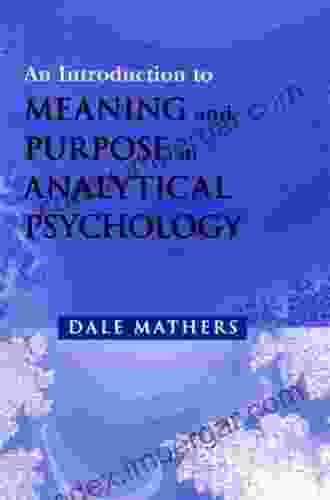Delve into the Profound Insights of Lectures On The Philosophy Of History

Prepare to embark on an intellectual journey as we explore the remarkable work of G.W.F. Hegel, Lectures On The Philosophy Of History. Originally delivered as a series of lectures at the University of Berlin, this seminal work has captivated scholars and historians for centuries with its profound insights into the nature of human progress.
Released in 1837, Lectures On The Philosophy Of History presents Hegel's comprehensive examination of the evolution of civilizations and the unfolding of the world spirit. Through a meticulous analysis of historical events, Hegel argues that history is not a random sequence of occurrences but rather a rational process guided by an underlying principle of reason.
4.4 out of 5
| Language | : | English |
| File size | : | 1524 KB |
| Text-to-Speech | : | Enabled |
| Screen Reader | : | Supported |
| Enhanced typesetting | : | Enabled |
| Word Wise | : | Enabled |
| Print length | : | 442 pages |
| Lending | : | Enabled |
Hegel's Dialectical Framework
Central to Hegel's philosophy of history is the concept of dialectics. According to Hegel, the development of history occurs through a series of conflicts or contradictions known as a thesis, antithesis, and synthesis. In each historical period, a prevailing idea or belief (thesis) emerges, only to be challenged by its opposite (antithesis). The resolution of these conflicting ideas results in a new and more comprehensive synthesis, which then becomes the thesis for the next historical epoch.
Hegel applies this dialectical framework to trace the evolution of human consciousness through different stages of history. Beginning with the Eastern civilizations, where the individual was absorbed into the collective whole, he progresses through the Greek and Roman eras, where individual subjectivity emerged, and ultimately to the Christian era, which witnessed the recognition of the universal spirit.
The Role of Reason in History
For Hegel, the driving force behind historical progress is reason. He believed that the human mind has the inherent capacity to comprehend the underlying principles that govern the universe and that this understanding guides our actions and shapes our destiny. According to Hegel, it is through the development of reason that we can fully realize our potential as individuals and as a civilization.
Hegel's emphasis on reason places human beings at the center of the historical process. He argues that we are not passive spectators but rather active participants in the unfolding of history. By understanding the laws of reason that govern the world, we can consciously contribute to the betterment of humanity.
The Importance of Freedom
Another key concept in Hegel's philosophy of history is freedom. He believed that the ultimate goal of historical progress was the realization of human freedom. According to Hegel, true freedom is not simply the absence of constraints but rather the ability to act in accordance with our rational nature.
Hegel emphasizes the importance of both individual and collective freedom. He argues that the individual must be free to pursue their own aspirations, while the state must also provide the necessary conditions for the development of individual freedom. This delicate balance between individual and collective freedom is essential for a just and harmonious society.
Relevance to Contemporary Society
Despite being written over two centuries ago, Lectures On The Philosophy Of History remains remarkably relevant to contemporary society. Hegel's insights into the nature of historical progress, the role of reason, and the importance of freedom provide a valuable framework for understanding the challenges and opportunities facing our world today.
In an era marked by globalization, technological advancements, and social upheaval, Hegel's philosophy can help us make sense of the complex forces shaping our societies. By understanding the dialectical process that drives historical change, we can better navigate the challenges of the present and work towards a more just and equitable future.
Lectures On The Philosophy Of History is an essential work for anyone interested in understanding the profound nature of human history and our place within it. Hegel's brilliant insights into the role of reason, the importance of freedom, and the dialectical process that drives historical progress offer a timeless perspective on the human condition.
Whether you are a scholar, historian, or simply someone seeking a deeper understanding of the world around you, Lectures On The Philosophy Of History is an invaluable resource that will enrich your knowledge and inspire your thinking.

4.4 out of 5
| Language | : | English |
| File size | : | 1524 KB |
| Text-to-Speech | : | Enabled |
| Screen Reader | : | Supported |
| Enhanced typesetting | : | Enabled |
| Word Wise | : | Enabled |
| Print length | : | 442 pages |
| Lending | : | Enabled |
Do you want to contribute by writing guest posts on this blog?
Please contact us and send us a resume of previous articles that you have written.
 Book
Book Novel
Novel Page
Page Chapter
Chapter Text
Text Story
Story Genre
Genre Reader
Reader Library
Library Paperback
Paperback E-book
E-book Magazine
Magazine Newspaper
Newspaper Paragraph
Paragraph Sentence
Sentence Bookmark
Bookmark Shelf
Shelf Glossary
Glossary Bibliography
Bibliography Foreword
Foreword Preface
Preface Synopsis
Synopsis Annotation
Annotation Footnote
Footnote Manuscript
Manuscript Scroll
Scroll Codex
Codex Tome
Tome Bestseller
Bestseller Classics
Classics Library card
Library card Narrative
Narrative Biography
Biography Autobiography
Autobiography Memoir
Memoir Reference
Reference Encyclopedia
Encyclopedia Pia Beck Rydahl
Pia Beck Rydahl Elisa Sofo
Elisa Sofo Bukky Ekine Ogunlana
Bukky Ekine Ogunlana Dan Emmett
Dan Emmett Bruno Bosteels
Bruno Bosteels Brian Mcdonald
Brian Mcdonald Edward W Beal
Edward W Beal Ian D Suttie
Ian D Suttie Brian Griffiths
Brian Griffiths Leonard L Richards
Leonard L Richards Robert Coram
Robert Coram C B Chastain
C B Chastain C C Aningo
C C Aningo Bree Picower
Bree Picower Susan Colbourn
Susan Colbourn Brian Browne Walker
Brian Browne Walker Lauren Doyle
Lauren Doyle Bruce Hoffman
Bruce Hoffman Melody Cohen
Melody Cohen Bruce Williams Burden
Bruce Williams Burden
Light bulbAdvertise smarter! Our strategic ad space ensures maximum exposure. Reserve your spot today!

 Rex HayesJourney Through the Cradle of Civilization: Unraveling the Secrets of Ancient...
Rex HayesJourney Through the Cradle of Civilization: Unraveling the Secrets of Ancient...
 Ernest J. GainesIson and Great Comets of the Past and Future: The Patrick Moore Practical...
Ernest J. GainesIson and Great Comets of the Past and Future: The Patrick Moore Practical... David MitchellFollow ·12.8k
David MitchellFollow ·12.8k Ray BlairFollow ·9.3k
Ray BlairFollow ·9.3k Seth HayesFollow ·11k
Seth HayesFollow ·11k Leon FosterFollow ·12.3k
Leon FosterFollow ·12.3k Emmett MitchellFollow ·10.7k
Emmett MitchellFollow ·10.7k Darius CoxFollow ·16.8k
Darius CoxFollow ·16.8k Walt WhitmanFollow ·15k
Walt WhitmanFollow ·15k Chris ColemanFollow ·7.6k
Chris ColemanFollow ·7.6k

 Gary Cox
Gary CoxUnlocking Meaning and Purpose in Life: An Exploration of...
In an increasingly...

 Eric Hayes
Eric HayesMemoirs of the Early Pioneer Settlers of Ohio Illustrated
A Window into the Lives of Courageous...

 J.R.R. Tolkien
J.R.R. TolkienThe Montgomerys and Their Descendants: A Saga of Courage,...
Prepare to be...

 Avery Simmons
Avery SimmonsThe Rifle Musket: The Dawn of Modern Infantry Warfare
: The rifle musket, a revolutionary...

 Jesse Bell
Jesse BellUnlock the Power of Excel with VBA and Macros: A...
Microsoft Excel is a powerful spreadsheet...
4.4 out of 5
| Language | : | English |
| File size | : | 1524 KB |
| Text-to-Speech | : | Enabled |
| Screen Reader | : | Supported |
| Enhanced typesetting | : | Enabled |
| Word Wise | : | Enabled |
| Print length | : | 442 pages |
| Lending | : | Enabled |










